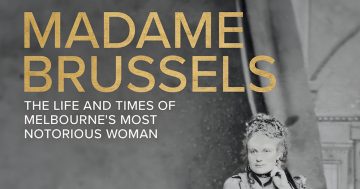Reviewed by Robert Goodman.
By Veronica Roth, Hachette, $32.99.
 Veronica Roth, probably still best known for her YA Divergent series, continues to move into a more adult-oriented mode with her latest book Poster Girl. While her last book Chosen Ones, explored the world of heroes when there is no more heroics do be done, Poster Girl is post-dystopian. That is not to say the new world is in anyway utopian, but Poster Girl opens on and explores a world in which a repressive, rules-and-surveillance-based regime recently existed but has since been overthrown.
Veronica Roth, probably still best known for her YA Divergent series, continues to move into a more adult-oriented mode with her latest book Poster Girl. While her last book Chosen Ones, explored the world of heroes when there is no more heroics do be done, Poster Girl is post-dystopian. That is not to say the new world is in anyway utopian, but Poster Girl opens on and explores a world in which a repressive, rules-and-surveillance-based regime recently existed but has since been overthrown.
Sonya Kantor lives in the Aperture, a kind of open air prison/ghetto for those who were associated with the old, repressive regime known as The Delegation. When she was sixteen, Sonya had literally been the poster girl for The Delegation, her face plastered around the city. So much so that ten years on and people still call her “poster girl”. During the rule of The Delegation, every person had an implant behind their eyes called an Insight, a device used to monitor behaviour and assign social credit scores to every citizen. Now only those in the Aperture still have Insights which allows their jailers to monitor their movements. Sonya is content to live out her life in the Aperture until Alexander, an old friend, who turned on his family in the revolution and now works for the new regime, appears and offers her an out: help track down a missing child, taken from her parents during the Delegation era, and she will be given her freedom. And so begins Sonya’s investigation of the post-Delegation world, an investigation that will take her back into her childhood and the secrets of both the Delegation and the regime that has replaced it.
Sonya is a flawed heroine with plenty of skeletons in her closet, and her investigation goes further in developing her understanding of the damage that the Delegation did to her and, through her, to others. She was not just the face of the old regime, but a willing participant in and beneficiary of its repressive and hierarchical system. So she has plenty to atone for, but also a more clear-eyed way of looking at the world that has replaced the one she knew. As with Chosen Ones, through Sonya and Alexander, Roth explores what it means to grow up: to develop a more complete understanding of your younger self and to come to terms with some of the more stupid or thoughtless things that you might have done as a teenager or young adult.
Poster Girl is a dark novel but it is never dour or depressing. By taking a post-dystopian society, Roth sets up a complex world and then digs into those complexities. In doing so she questions the role of technology in our lives and the pervasiveness of celebrity and media, and considers how we strike the balance between gathering and sharing information and universal surveillance. And there are threads of redemption here, of people striving to make a broken but recovering world better by coming to terms with their past, or at least making peace with it. This is another interesting turn from Roth who is continuing to challenge her readership.
Over 800 more book reviews can be found on Pile by the Bed.











